
TAR-200 shows promise in treating BCG-unresponsive bladder cancer, achieving 82% tumor elimination and offering new hope for patients.

TAR-200 shows promise in treating BCG-unresponsive bladder cancer, achieving 82% tumor elimination and offering new hope for patients.
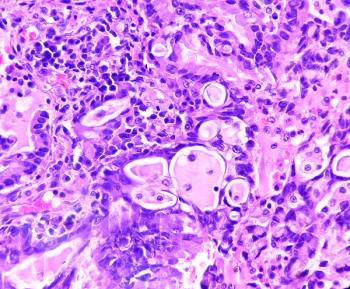
New research links high perilipin 2 expression in lung adenocarcinoma to aggressive disease progression and shorter survival, highlighting potential treatment targets.

BV-R2 combination shows survival benefit across high-risk subgroups.

Natural compounds like Prunus armeniaca and bee venom enhance breast cancer treatment, boosting efficacy and reducing adverse effects.

Pharmacists play a crucial role in improving vaccination rates among patients with cancer, addressing barriers, and enhancing patient education in oncology care.

Oncology pharmacists could be canaries in the coal mine of health care systems.

Glofitamab-GemOx improves survival in transplant-ineligible patients with R/R DLBCL.

Amy C. Nieto delves into the latest advancements in non-small cell lung cancer (NSCLC) treatment, including sunvozertinib, a newly-approved therapy for challenging EGFR exon 20 insertion mutations.

Individuals who have survived childhood cancer had a higher risk of developing a severe COVID-19 infection, while exhibiting a lower risk of contracting the virus.
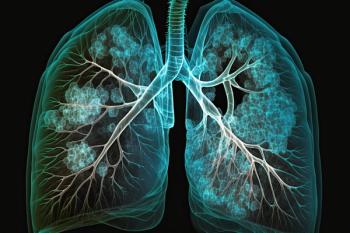
The action is supported by positive safety and efficacy findings from the phase 1a/1b first-in-human Beamion LUNG-1 trial.

Recent advances in GI oncology offer new treatment options for colorectal and pancreatic cancers, enhancing patient care and pharmacist roles in management.

CPX-351 shows promise for younger adults with therapy-related AML, offering improved survival post-transplant despite lower initial remission rates.

Recent data link a higher consumption of ultraprocessed food to increased lung cancer risk, highlighting the need for dietary changes and further research.
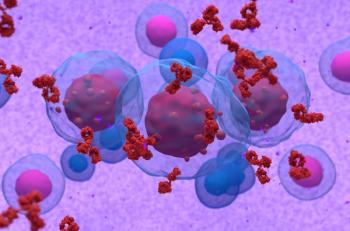
CARTITUDE-1 data show one-third of patients treated with cilta-cel remain progression free at 5 years without maintenance.
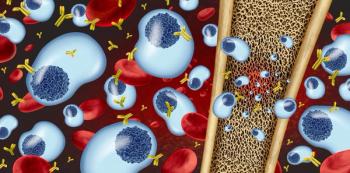
Discover the latest advancements in multiple myeloma treatment, including new therapies and FDA approvals that enhance patient outcomes and survival rates.

PHESGO reduced patient infusion time from 90 minutes to as few as 5, enhancing patient experience while maintaining efficacy and safety.

August marks a pivotal time for oncology pharmacy, blending transitions, celebrations, and new beginnings as professionals prepare for the upcoming season.

Herzuma shows promising efficacy and safety as a cost-effective biosimilar for treating HER2+ advanced gastric cancer, offering new hope for patients.


Discontinuing lenalidomide after 3 years of MRD negativity shows low relapse rates in multiple myeloma, offering hope for treatment-free remission.

AI is transforming oncology by enhancing clinical trials, personalizing treatments, and improving pharmacy practices, promising faster, more precise cancer care.
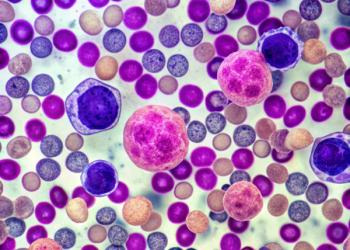
Sundar Jagannath, MBBS, highlights pharmacists’ expanding role in managing linvoseltamab’s immunologic profile, supporting adverse event response, and advancing multiple myeloma care.

Eileen Peng, PharmD, discusses how her team has restructured pharmacy services to support outpatient administration of CAR T-cell and bispecific therapies—emphasizing multidisciplinary collaboration, early toxicity management, real-world data integration, and pharmacist-led care transitions to ensure safety and continuity across care settings.

Two pharmacy leaders at UNC Health share how their distinct yet complementary leadership journeys and skill sets are driving innovation in clinical practice, education, and team development across the health system.

LeAnne Kennedy, PharmD, BCOP, CPP, FHOPA, FASTCT, discusses the collaborative culture, research opportunities, and leadership pathways that define oncology pharmacy practice at Atrium Health Wake Forest Baptist, while emphasizing the importance of advocacy and visibility for the profession.

Lawmakers across the country can learn from examples in states like Arkansas and Texas.

Pirtobrutinib shows promising results in a head-to-head trial against ibrutinib for chronic lymphocytic leukemia (CLL)/small lymphocytic leukemia (SLL).

Hormonal contraceptives present a nuanced risk-benefit profile, slightly increasing breast and cervical cancer risk while significantly reducing ovarian and endometrial cancer rates.
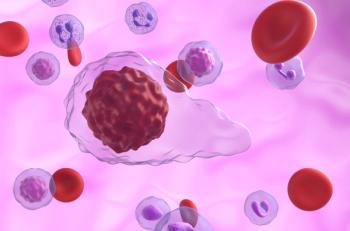
Luspatercept shows promise in reducing transfusion dependence for myelofibrosis-associated anemia, despite not meeting primary trial end points.